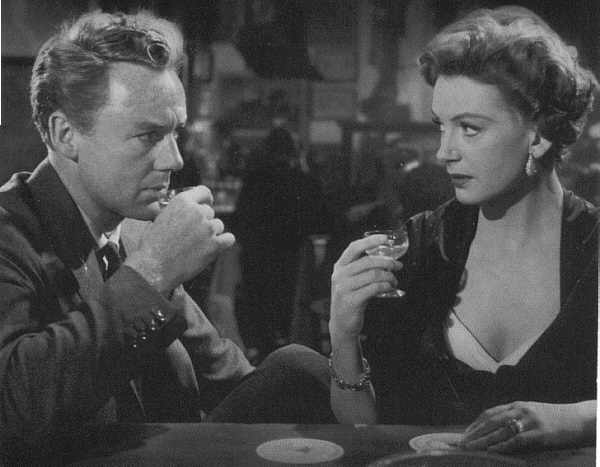Maybe it says something about me, but when I’m asked, or prompt myself, to think of “romantic” moments in art, whether in books, or plays, or films, or in visual imagery, I always think of moments or objects which move me, not to wide grins of happiness, but to tears. It may be partly to do with Tolstoy’s observation that “All happy families are alike; each unhappy family is unhappy in its own way”. A happy ending is too neat to be truly satisfying. The depth of human emotion, of passion that moves the gut and interrupts the rhythm of the heart, is surely to be found in disappointment, dismay, despair.
So I think of James Bond cradling his new bride’s dead body in On Her Majesty’s Secret Service; Orpheus taking that fateful decision to look back, so overpowering is his love for Eurydice, though he knows what will and must happen; Stevens and Miss Kenton in The Remains of the Day facing each other, so much more said by the suffocating silences than by the few, terse words between them.
Believing, as I seem to do, that true romance finds its best expression in loss and suffering, it is always, in the end, to Graham Greene that I turn. I discovered him as a teenager, jumping into Brighton Rock expecting a story of jolly japes by the seaside and finding, instead, a stifling, fear-soaked, anxious morality tale, the shadow of the Catholic Church always present. As Pinkie and Rose spiral into danger and mortality, I found a painfully eloquent expression of what my angst-ridden teenage self regarded as the real kernel of romance.
So to Greene, but not Brighton Rock; instead to The End of the Affair, the last of his ‘Catholic’ novels, a slender work but dense with meaning. For those who haven’t read the book, it is London in wartime, and Bendrix, a writer, is having an affair with Sarah, the wife of an impotent civil servant. One night, when they are together, a bomb lands nearby and they are buried in the ensuing rubble. Sarah, seeing her lover’s body, prays for his survival, making a compact with God that if he spares Bendrix, she will cut off the affair and never see him again.
There is no doubt that for Sarah that is an agonising choice—compacts with God always are, as Abraham could have told her. But she loves Bendrix so much that she is able to set her own ruined feelings aside and wish primarily for his survival, his wellbeing. Bendrix survives, of course, but Sarah fulfils her bargain and does not see him again. He imagines her taking other lovers, and the longing in his heart curdles to hate—it is a shorter distance than we sometimes imagine—living up to his opening words: “This is a record of hate far more than of love”. He is eaten away by jealousy, hiring a private detective to find out what she is really up to.
The private detective procures Sarah’s diary and delivers it to Bendrix, who reads of her pact with the Almighty and finally understands her behaviour. He makes plans for them to run away together and confronts her, knowing now what she has done, and believing they can be reunited. But Sarah runs from him, fleeing desperately until she collapses in a coughing fit. Bendrix takes her home and leaves her to recover, but her chest infection, in these early days of penicillin, kills her. There will be no second act for this affair.
It is Sarah’s diary which fully exposes the agony of true love. In describing her decision to bargain with God, she dwells on the nature of passion, and it is terrible but also terrifyingly selfless. She is uncertain, but seems to know, however cruel, what she must do; she knows that there will be no going back.
I said very slowly, I’ll give him up for ever, only let him be alive with a chance, and I pressed and pressed and I could feel the skin break, and I said, People can love without seeing each other, can’t they, they love You all their lives without seeing You, and then he came in at the door, and he was alive, and I thought now the agony of being without him starts, and I wished he was safely back dead again under the door.

